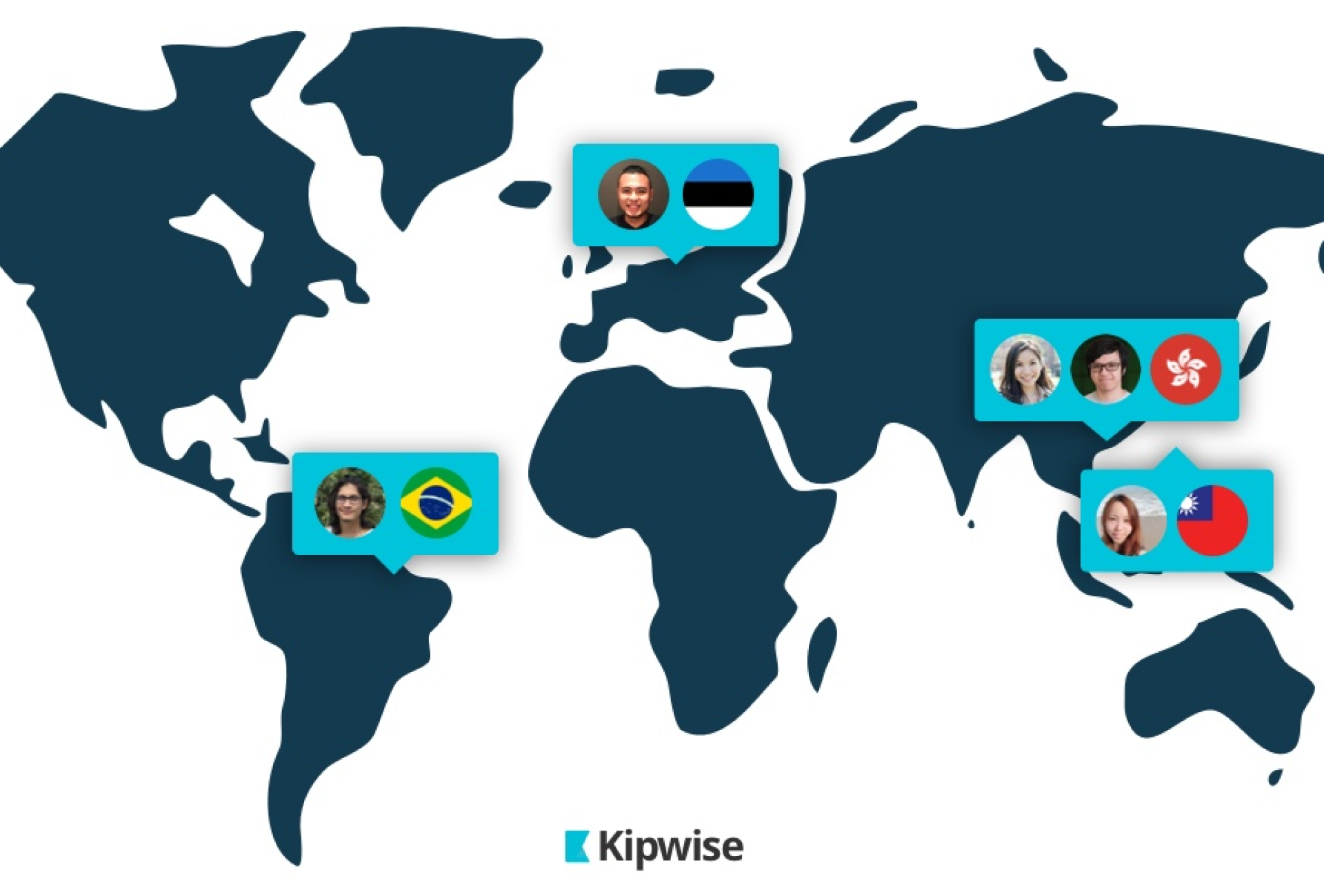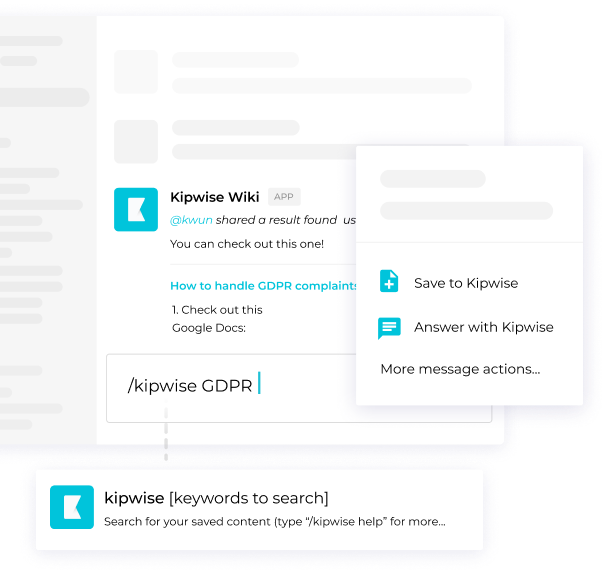Since we started Kipwise, the most frequent response that I have been getting when I introduced our founding team was a surprised face 😮
“What? Your co-founder is based in Estonia?”

Having a co-founder in Estonia is not a surprising thing as Estonia has become a fast growing tech hub in recent years, the surprising thing is that I and another co-founder are based in Hong Kong.
Yes, we are a team of three co-founders working remotely. And by saying remotely, we mean really far, 7852km apart to be exact – Charlie (CTO) and I (CMO) are based in Hong Kong, while Kwun (CEO) is based in Estonia.
Although remote teams are becoming more and more common, many people are still skeptical about co-founders working in a remote setting. Try googling “remote co-founders”, and there are tonnes of questions like “Do you think a startup can succeed with a remote founder?”, “Does having a remote co-founder affect the aspect of raising funds?”

As a team who is currently walking the path of working as remote co-founders, we’d like to share our experiences to shed some light on those questions.
Although Kipwise is still young, so we don’t know if it will ultimately become a success yet, but we are making good progress. We started Kipwise back in May 2018, successfully got into Techstars (which is one of the top accelerators in the world) in July 2018 and we recently closed a round of seed funding from Icebreaker.vc and two angel investors from Germany.
If you are currently wondering if remote working can work for your founding team as well, we hope this article can give you some insights.
Background of how we started working together remotely
Kwun, Charlie and I met each other back in 2012 when we were among the first five employees at another startup in Hong Kong. We worked together there for almost 4 years and that created a great bonding among us, so even though Kwun took on an adventure and went to Estonia after he left that company, we still kept closely in touch.
We often discussed the pain points we encountered at work and what might be some interesting ideas to solve those challenges. And from those discussions and some side projects to test our hypotheses, Kipwise was born! After getting some initial traction, we decided to go full time to work on Kipwise and the question arose – should Kwun continue to stay in Estonia while Charlie and I stay in Hong Kong?
Why we decided to work remotely as co-founders
After some discussions, we all agreed to go for the remote route.
1. Stay closer to target customers
Kipwise is a team knowledge management tool built on Slack that helps teams share and organize useful team knowledge in a more automated and collaborative way. Based on our experience of working in/with companies in Asia and Europe, the culture of team knowledge management is much stronger in Europe than in Hong Kong.
By having Kwun staying in Europe, it’s much easier for us to conduct customer development, which is a very important part of ensuring the success of an early startup. From our experience, it’s always more effective to do customer development face-to-face, as people tend to express more in a face-to-face setting and you can read their reactions more easily as well.
2. Stay closer to potential investors
Other than staying closer to our target customers, by having Kwun in Europe, it is also much easier to talk to potential investors who are interested in the knowledge management software market because B2B SaaS market is still much less mature in Hong Kong when compared to Europe.
And we eventually got into the Techstars London 2018 summer program and got funded by Icebreaker VC that is based in Finland together with angel investors from Germany.
3. Keeping burn rate low
Perhaps you might ask, if our target customers and potential investors are both more likely to be in Europe than in Hong Kong, why don’t we three all move to Europe? One reason is to keep the burn rate low.
By staying in Hong Kong (which is our home town), both Charlie and I can still live with our families to keep expenses low. Working remotely also saves cost on office rental and commuting.
4. Expose ourselves to the global talent network
With the initial remote setup, our team is ready to add teammates from other regions besides only from one single city, while most of the major cities are suffering from talent shortage.
Our remote setup forces us to setup a good communication process and internal team knowledge base (of course we are using Kipwise ourselves) right at the beginning to avoid the issues brought by not working in the same office.
And this has proven to be very beneficial when we started to add new team members to the team. Currently, other than us three co-founders, we have two teammates from Taiwan and Brazil. We did not face significant problems when onboarding them because most of the processes are already in place when there were only founders.





